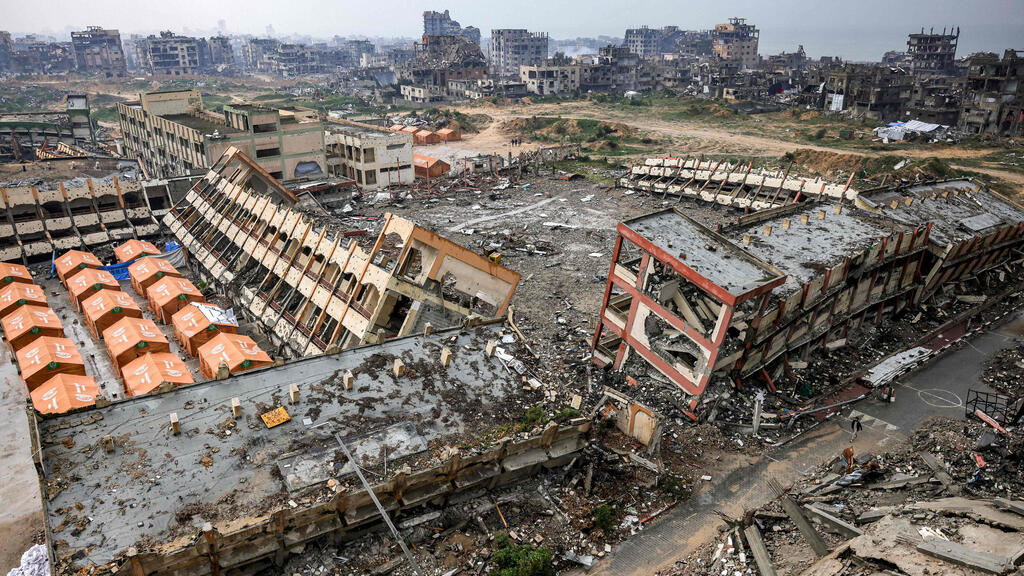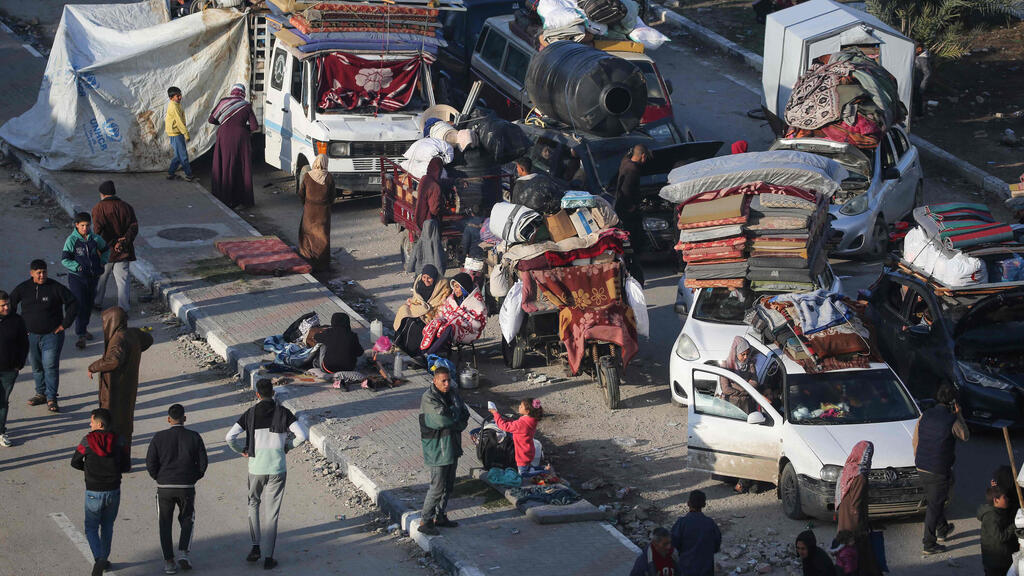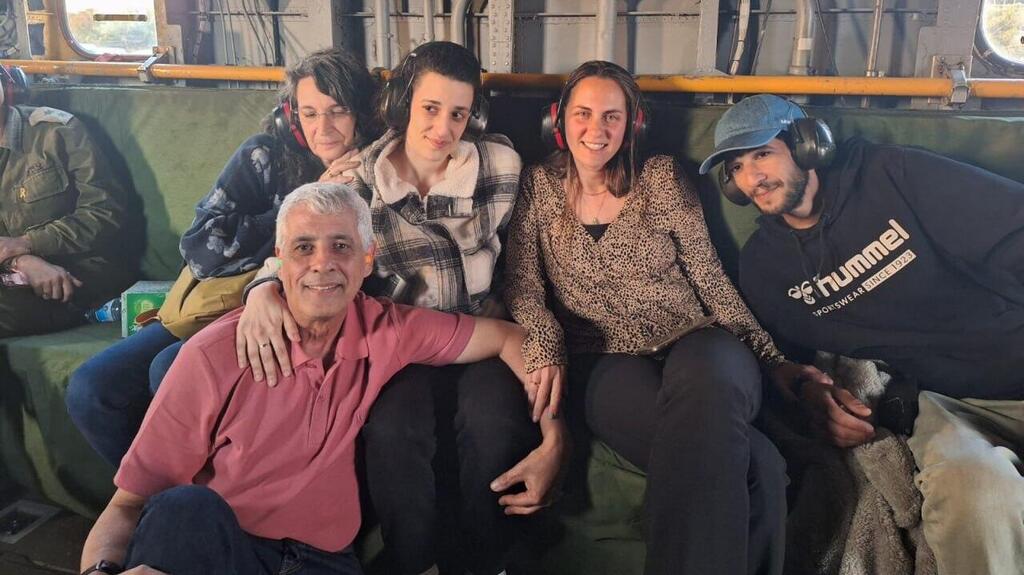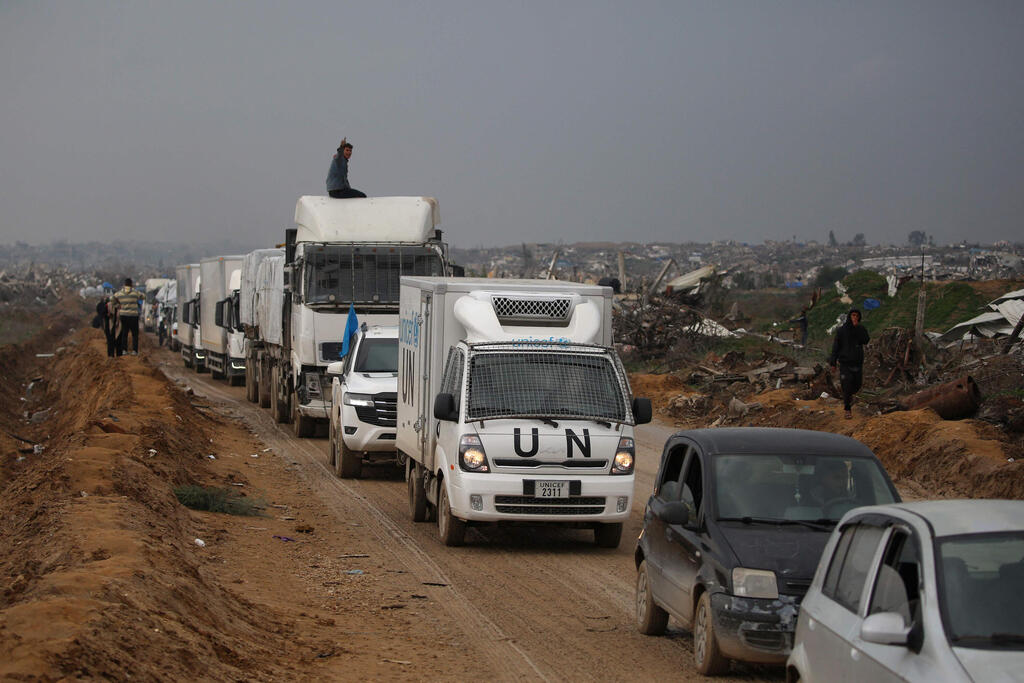Getting your Trinity Audio player ready...
Hamas on Monday announced it would delay the release of hostages "until further notice," citing Israeli violations of the cease-fire agreement. The move threatens the cease-fire and the release of 17 remaining hostages in the first phase of the deal.
The terror group demanded Israel "compensate" it for recent events and said the delay would remain in effect until Israel recommits to the agreement.
Hamas military spokesman Abu Obaida outlined the alleged violations: "Delays in allowing displaced persons to return to northern Gaza, gunfire and shelling in various areas and failure to deliver agreed-upon aid, while we have upheld all our commitments." Israeli officials rejected the claims, saying, "They were reviewed and found baseless."
Hamas accused Israel of preventing northern Gaza residents from returning home on the agreement’s seventh day. According to the deal, the IDF was to withdraw from the coastal road and dismantle military installations, but the retreat was delayed by two days.
Israeli forces had postponed their withdrawal from the Netzarim Corridor after Hamas failed to release civilian hostage Arbel Yehoud in the second hostage release round. Instead, Hamas freed four female IDF lookouts, prompting a temporary hold on civilian movement.
After the issue was resolved, Gaza residents were seen crossing the road and returning north. Hamas later declared, "The return of the displaced is a victory for our people and proof of the failure of Israel’s plans."
Gazans crossing past the Netzarim Corridor
Hamas also accused Israel of continuing military operations throughout Gaza, despite the cease-fire agreement mandating a "temporary pause in military activity" and an IDF pullback from populated areas along the border. The terror group claimed Israeli forces continued to engage, sometimes firing at civilians or terrorists.
Get the Ynetnews app on your smartphone: Google Play: https://bit.ly/4eJ37pE | Apple App Store: https://bit.ly/3ZL7iNv
The IDF responded that its actions were in line with the agreement. "Troops fired warning shots to deter individuals approaching forces operating in various areas," a military statement read. "The IDF remains committed to the deal to secure the return of hostages and will take necessary measures against immediate threats."
Hamas repeatedly claimed Israel violated the humanitarian provisions of the deal. The group terror argued that too few aid trucks had entered Gaza, citing a shortfall of 3,500 trucks from the agreed-upon 12,000. Hamas-affiliated media also reported shortages of 35 fuel trucks per day and 180,000 tents.
Israel’s Coordination of Government Activities in the Territories (COGAT) rejected Hamas's allegations, saying, "All agreed-upon aid trucks have entered Gaza. Over 600 aid trucks crossed through Kerem Shalom, Erez and the 147 crossing near Kissufim."
U.S. President Donald Trump on Hamas' violations
Regarding caravans that have not yet been delivered, Israeli officials clarified that their supply is the responsibility of mediators. "There are no trucks waiting for our approval at the Kerem Shalom and Erez crossings or in Egypt," a statement read. "The mediators have yet to send them, so this does not stand as an Israeli violation."
Ynet’s military analyst Ron Ben-Yishai reported that Hamas leadership was unfazed by U.S. President Donald Trump’s threats to “let all hell break out” should the hostages not be released, as any repercussions would primarily affect mediators like Egypt, Qatar and Jordan.
If Trump follows through on his warnings and lets ‘all hell break out,' as he put it, the mediators will bear the cost. While Hamas is unlikely to be directly impacted, the humanitarian aid flow – largely funded by Arab nations – could be affected. Pressure on Hamas’ leadership abroad could lead to renewed hostage releases if Israel agrees to certain aid concessions.









